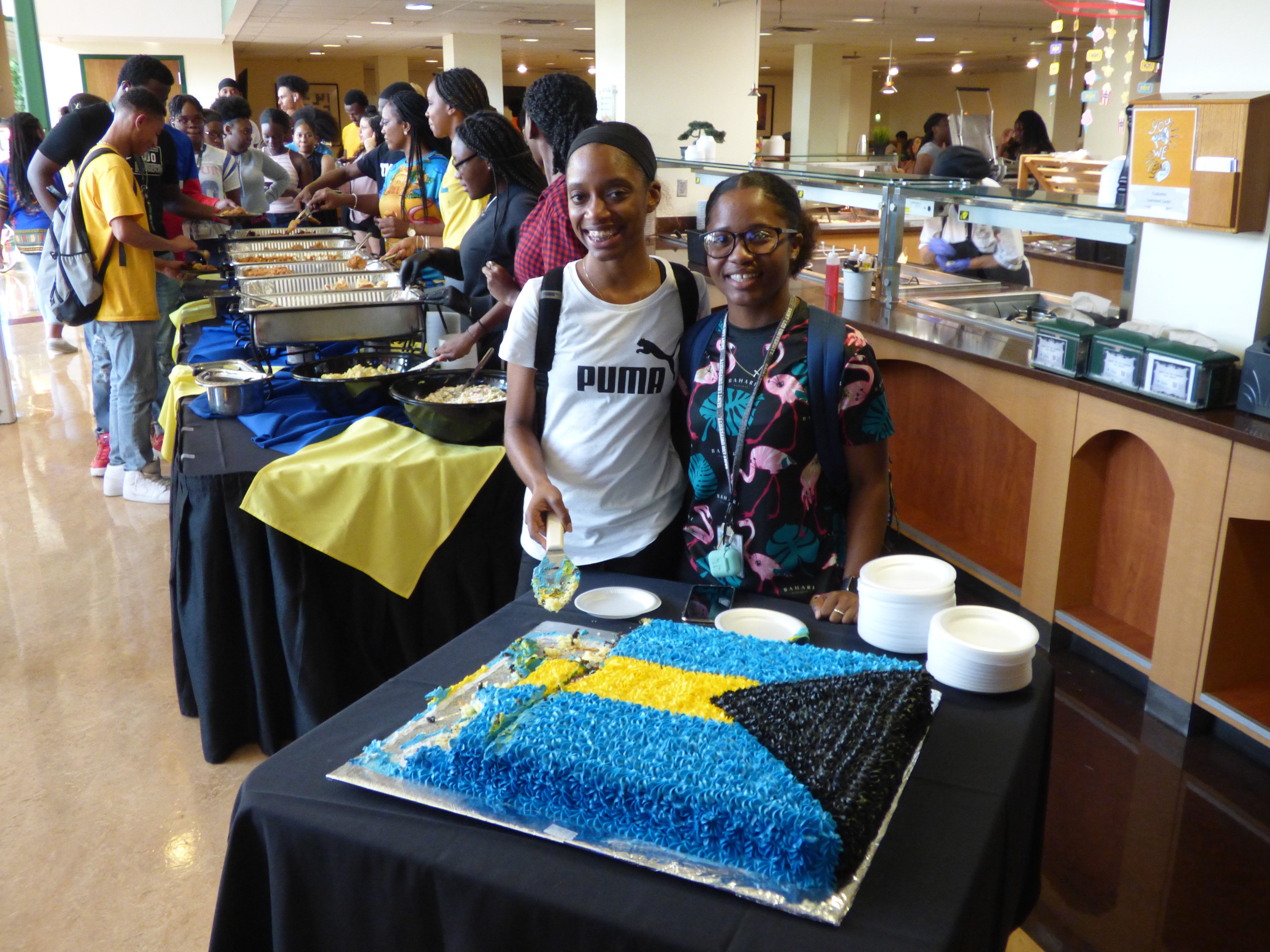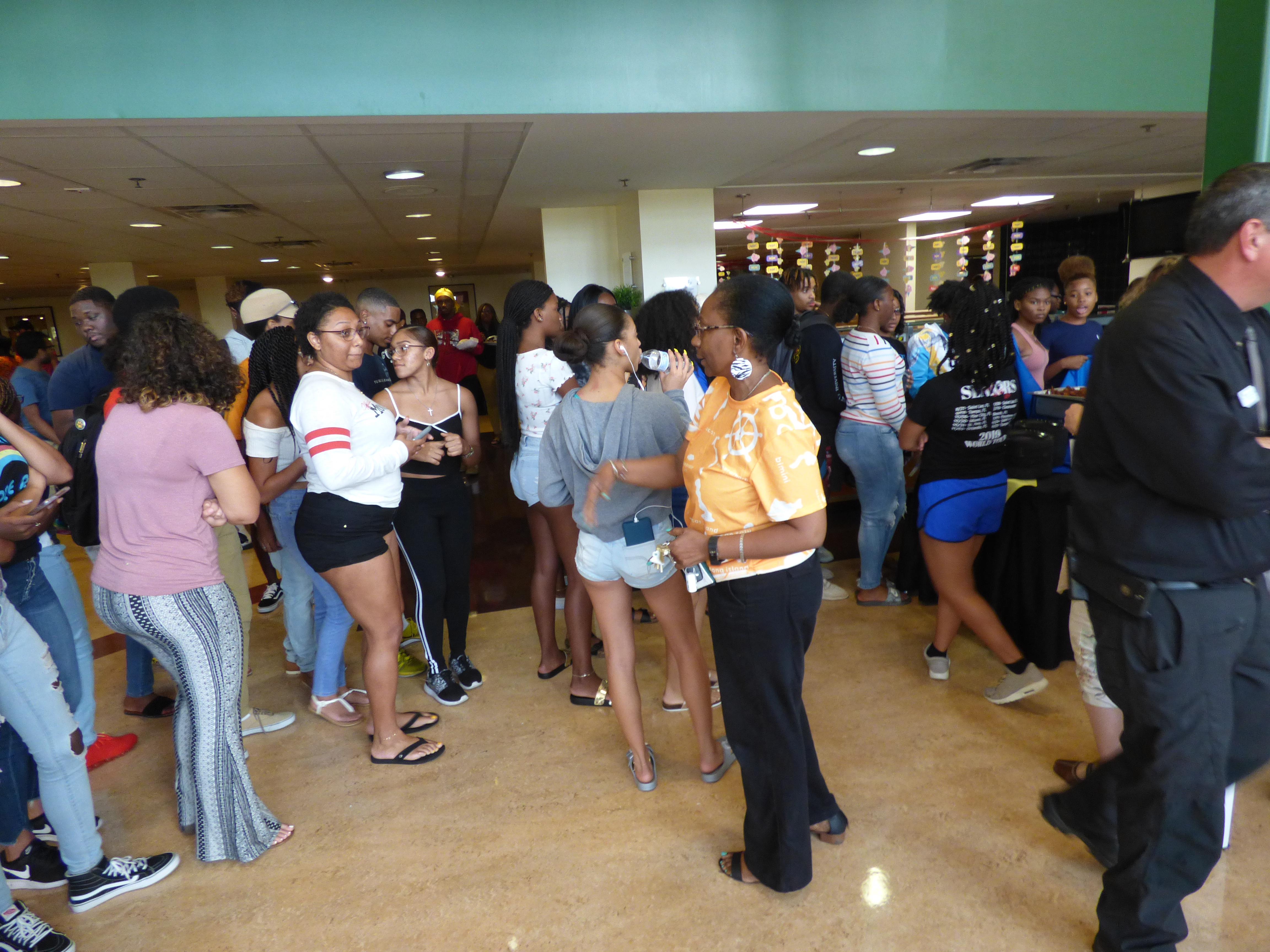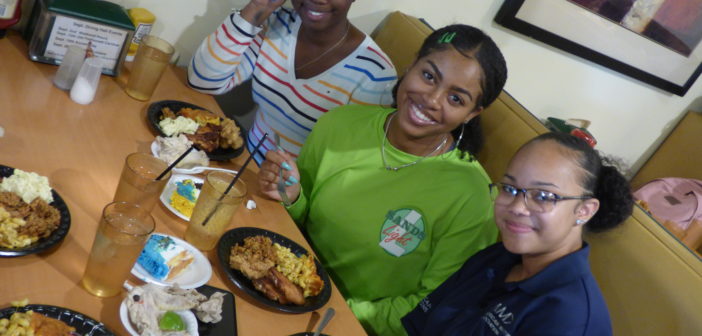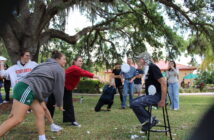By: Pleshae McPhee, Contributing Writer
Though it maintains a small enrollment in comparison to larger universities, Saint Leo University continuously seeks to expand and welcomes hundreds of students every year. Suitably, the university’s departments, such as Dining Services, adapt and undergo rapid change to accommodate these increases.
Dining services seeks to provide a common resource for Saint Leo students to connect and socialize with good meals and good conversation. Through the cafeteria, it offers a wide selection of food options to satisfy vast tastes during the day, and has a late night cafe, the Lion’s Lair, where students are able to get quick meals on the go or satisfy hunger outside of dining hall hours.
The 2019 undergraduate cohort and transfers has seen a “record-breaking” influx of students with roughly 1000 joining the pride. This change has resulted in a huge impact on students, faculty, dining service directors, and staff alike.
Justin Bush, Interim Director/Executive Chef of Dining Services, oversees the services for the Dining Hall and Lion’s Lair retail store, and was able to speak on the changes that dining services has made. He has been the director at Saint Leo for ten years and in that time has dealt with both decreasing and increasing trends in the student population.
“I have been the Executive Chef for Saint Leo for about 10 years now so I’ve dealt with these fluctuations for that amount of time, and though this might have been a larger gap in those fluctuations, it stays pretty consistent year to year”, said Bush.
He continued, “So, you will always notice that we will have a rise and a fall, so to be able to constantly change and adapt to that is one of the biggest priorities we have here at Dining Services”.
The addition of students consisted of both domestic and international origins, as a result
Bush explained that one of the things that Dining Services has done to accommodate the students is providing menu options that are more “globally inspired, and provide different alternatives that meet these special diets.”
Moreover, Dining Services is strategic by speaking with freshmen and new students personally along with parents during orientation week, and in this way ensuring those needs are met and that menu items reflect inclusion as the priority.
Bush also said that the dining hall has not experienced problems in the regard of accommodation, but modifications had to be made with existing storage systems.
“There’s not really a problem accommodating, as far as preparation. Storage has gotten limited in our facility. So we have had to have more deliveries because we don’t have quite the storage and refrigeration that we need to accommodate that.”
He says in order to manage storage, dining services tracks their one monthly menu cycle and evaluates the trends amongst students with the different food options. Once analyzed, they “are able to adjust the production for the next cycle that comes around.”
Dining services tries “to overcompensate when purchasing the food to keep in mind that we’re going to have 10-12% differences that we might not prepare for,” Therefore, in this way, Dining Services adapts and ensures that food is always available.
Though Bush’s position entails more administrative tasks, he still is at the forefront and is present during peak activity. He agrees that it is crowded, but not to where it is at full capacity.
“Typically we see deviations in the amount of students that come to the dining hall based on class schedules. Because so many students have classes Monday and Wednesday, we see a higher peak, but at lunchtime’s core times,11:30-12:30, we know lunchtime is going to be really busy because there’ll be classes let out. It might be a little crowded.”
Accordingly, Dining Services has taken proactive action through the additional seating spaces on the upstairs dining hall level located outside of the Lion’s Lair to further accommodate the expanding population.
“We [provided]an additional 70 seats for the upstairs dining room by the Lion’s Lair. We also added another 25 seats to the patio this semester as well. So we did kind of make preparations to try to accommodate the bigger numbers through a little bit of expansion for the seating.”
He says that it has been really well received by the new and existing student population and by the staff and faculty as well.
He also mentioned that toward the beginning of the semester more students were utilizing dining services, with typically 1100-1200 students during the weekday and 450-500 students on the weekends using the dining hall. However as the semester progressed and students established routines, the numbers in the dining hall began to level off and grow closer to traditional numbers.
Dining Hall worker, Meg Riddle Brennan, has been with Saint Leo University for 7 years and can attest to the changes. Since there are more students, one of the employees had to be moved to the cashier position, and she has been moved to work at the salad bar at night when there were previously two workers stationed there.
“It’s been fluctuating but this is by far the busiest I have ever seen it.” Brennan said.
She says that the amount of salad bags that she runs through in a day has “quadrupled” since the increase this year and she makes about “500-700 salads a day.”
In previous years, dining services had the conventional set up of two servers at lunchtimes, however it has recently adopted the independent self-service to meet the demands of the increased student body.
“You accommodate everybody.” Riddle said. “You make adjustments. Now at night we’re doing the self-serve salad bar which allows the students to make their own salads. I’m still out there replenishing and everything, and if they want me to mix, I’ll mix it for them.”
Meg feels that above all with the increase, students are always patient and she uses the longer time to make salads as an opportunity to bond and engage with the students.
Also, Patricia Wynn, who has been working in the Lair for 13 years has also seen the big change this year.
“I would say it’s been almost double the increase of students.” she said.
Wynn explained that Lion’s Lair employees have become accustomed to the growth to better serve students.
“It wasn’t difficult. We handled it, but it’s more of a challenge because we’re trying to satisfy everybody and up there they’re not so laid back to sit like in the cafe. We get a lot of staff and we get a lot of commuters, and we get a lot of call-ins. So, they have limited time maybe between their break or because they got another class or maybe they’re going home,” said Wynn.
Wynn continued, “So, the pace is a little different. We like to serve them in the best that we can to get them out. We really pay attention to the time that they come in to the time that they come out because of the traffic coming in there. Not just the students but we pay attention to everybody because it would get crazy up there just how busy it is.”
Wynn also mentioned the implementation of the To-Go case initiative that was put to eliminate some of the traffic in the lair and serves students in a timely manner.
“There’s not so much we can change up there, but with there was the To-Go case they did do with the meal swipes. So now there’s a microwavable meal that they can swipe with the meal plan and get a drink for one swipe or like a salad, chips, and a drink or a sandwich, or a wrap but it’s already in that good-to-go. So the managers have done that to try to help the staff and the commuters to get in and get out and they love it! It’s really getting to be a big thing.
Wynn stated that the to-go meals are growing more in popularity among students, and athletes are asking more about it and the managers have placed a sign up explaining more about the meal options. She said that everyone from the workers to the staff have benefited from this strategy as it saves time because there isn’t any physical cash transactions and “it’s just a little swipe.”
Recognizing that students find their carbon footprint increasingly important, University President Jeffrey Senese says that the university is currently in the process of engaging a company that produces biodegradable containers.
Dr. Senese said, “This company produces green containers, so you won’t have to return them as they disintegrate over time.” Dr. Senese continued, “When you wash [the containers]you are burning more power than it saves and are cheaper, in the long run.”
Rylie McKinney, freshman and Biology major, and is part of the 2019 incoming class explained her experiences so far.
“Food is always available but there isn’t any guarantee that it is going to be warm. The quality of food isn’t great and there isn’t always a lot of options for fresh fruits and vegetables. It is very packed unless I go at an off time of the day.” she said.
She said the addition of more fresh foods would be a good step through improving dining services.
“To improve have more fresh food and vegetables. Also change out food more to make sure it is fresh and to solve the packed issue: add more seating.”
Notably, Mackenzie Miles is a third year Psychology major and represents the range of diversity that exists within the Saint Leo pride. She is faced with a physical disability, and because of this has felt a much bigger impact with the dining hall changes than other students.
“Breakfast is fine. Lunch and dinner is more difficult, however, because there are much more people. It gets too loud in the cafe sometimes and I can’t deal with it. Walking with the plate is sometimes an issue but not always.” she said.
She suggests a separate eating area and more practical ways to maneuver through the cafe to be implemented.
“Perhaps have a different place we could eat at if we want to during hot months because outside isn’t an option. Also, ask if I need help with the plate, but I may not need it all the time.”





